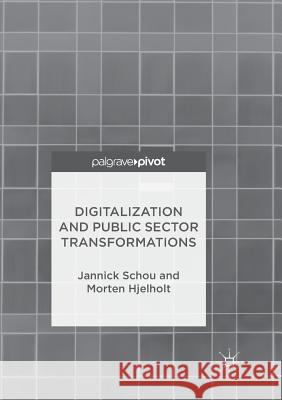Digitalization and Public Sector Transformations » książka
topmenu
Digitalization and Public Sector Transformations
ISBN-13: 9783030094546 / Angielski / Miękka / 2019 / 122 str.
Kategorie:
Kategorie BISAC:
Wydawca:
Palgrave MacMillan
Język:
Angielski
ISBN-13:
9783030094546
Rok wydania:
2019
Wydanie:
Softcover Repri
Ilość stron:
122
Waga:
0.17 kg
Wymiary:
21.01 x 14.81 x 0.74
Oprawa:
Miękka
Wolumenów:
01
Dodatkowe informacje:
Wydanie ilustrowane











